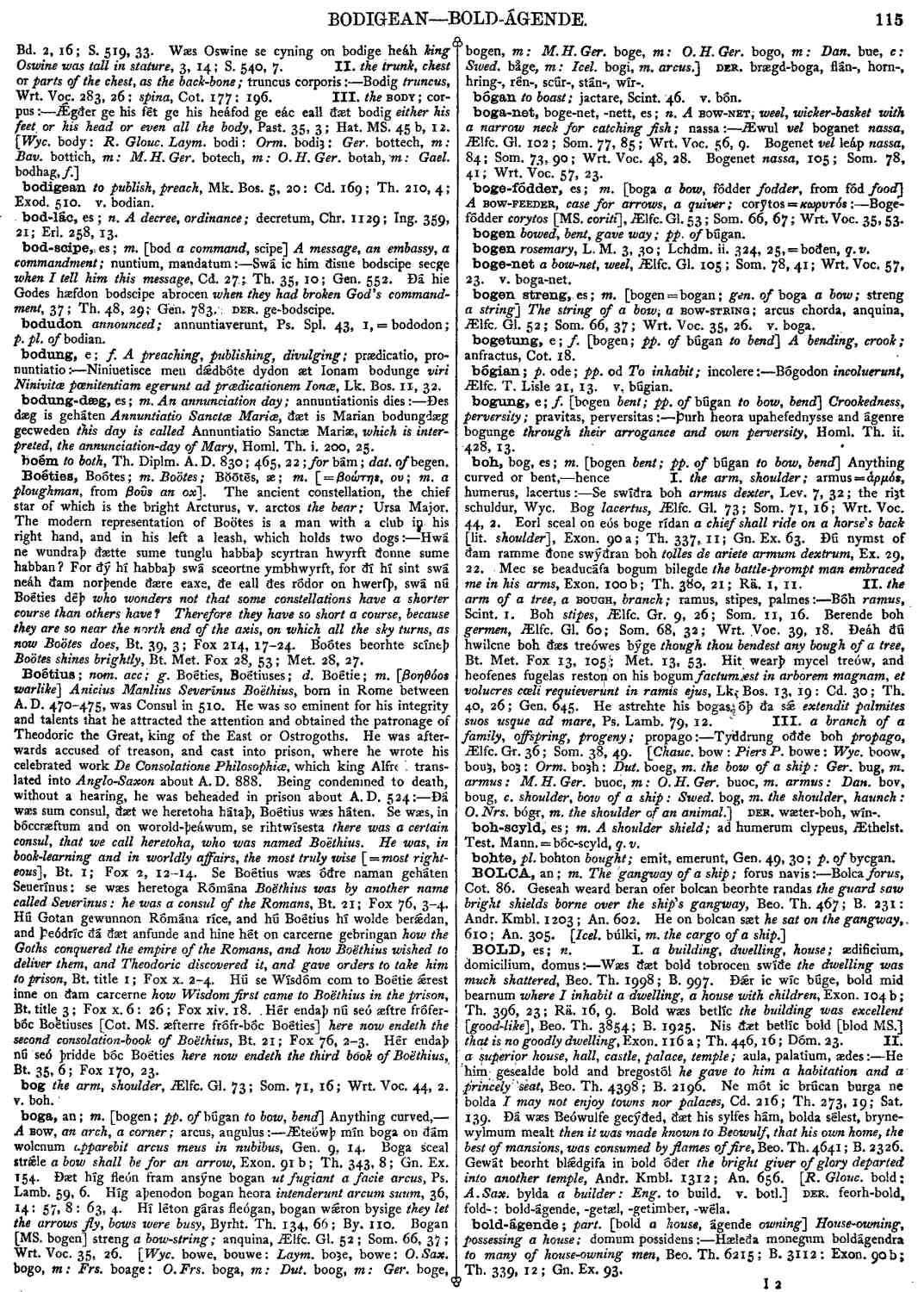Boétius
- noun [ masculine ]
-
Ðá wæs sum consul, ðæt we heretoha hitaþ, Boétius wæs háten. Se wæs, in bóccræftum and on worold-þeáwum, se rihtwísesta
there was a certain consul, that we call heretoha, who was named Boëthius. He was, in book-learning and in worldly affairs, the most truly wise [ = most righteous],
- Bt. 1; Fox 2, 12-14.
-
Se Boétius wæs óðre naman geháten Seuerínus: se wæs heretoga Rómina
Boëthius was by another name called Severīnus: he was a consul of the Romans,
- Bt. 21; Fox 76, 3-4.
-
Hú Gotan gewunnon Rómána ríce, and hú Boétius hí wolde berǽdan, and Þeódríc ðá ðæt anfunde and hine hét on carcerne gebringan
how the Goths conquered the empire of the Romans, and how Boëthius wished to deliver them, and Theodoric discovered it, and gave orders to take him to prison,
- Bt. title 1; Fox x. 2-4.
-
Hú se Wísdóm com to Boétie ǽrest inne on ðam carcerne
how Wisdom first came to Boëthius in the prison,
- Bt. title 3; Fox x. 6: 26; Fox xiv. 18.
-
Hér endaþ nú seó æftre fróferbóc Boétiuses [Cot. MS. æfterre frófr-bóc Boéties]
here now endeth the second consolation-book of Boëthius,
- Bt. 21; Fox 76, 2-3.
-
Hér endaþ nú seó þridde bóc Boéties
here now endeth the third book of Boëthius,
- Bt. 35, 6; Fox 170, 23.
Bosworth, Joseph. “Boétius.” In An Anglo-Saxon Dictionary Online, edited by Thomas Northcote Toller, Christ Sean, and Ondřej Tichy. Prague: Faculty of Arts, Charles University, 2014. https://bosworthtoller.com/4809.
Checked: 0